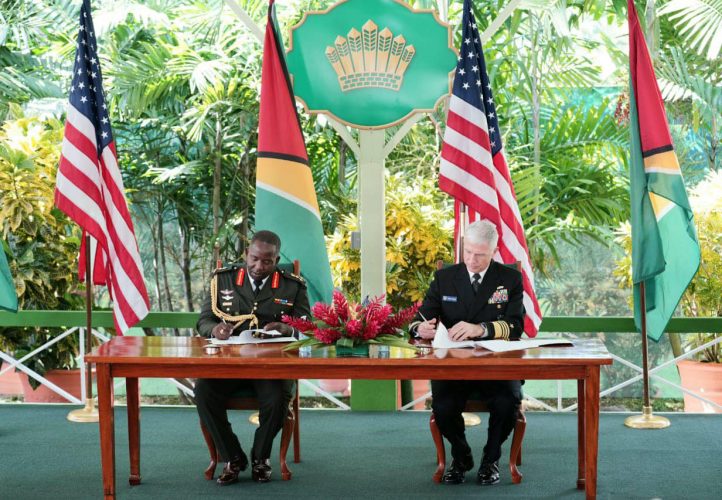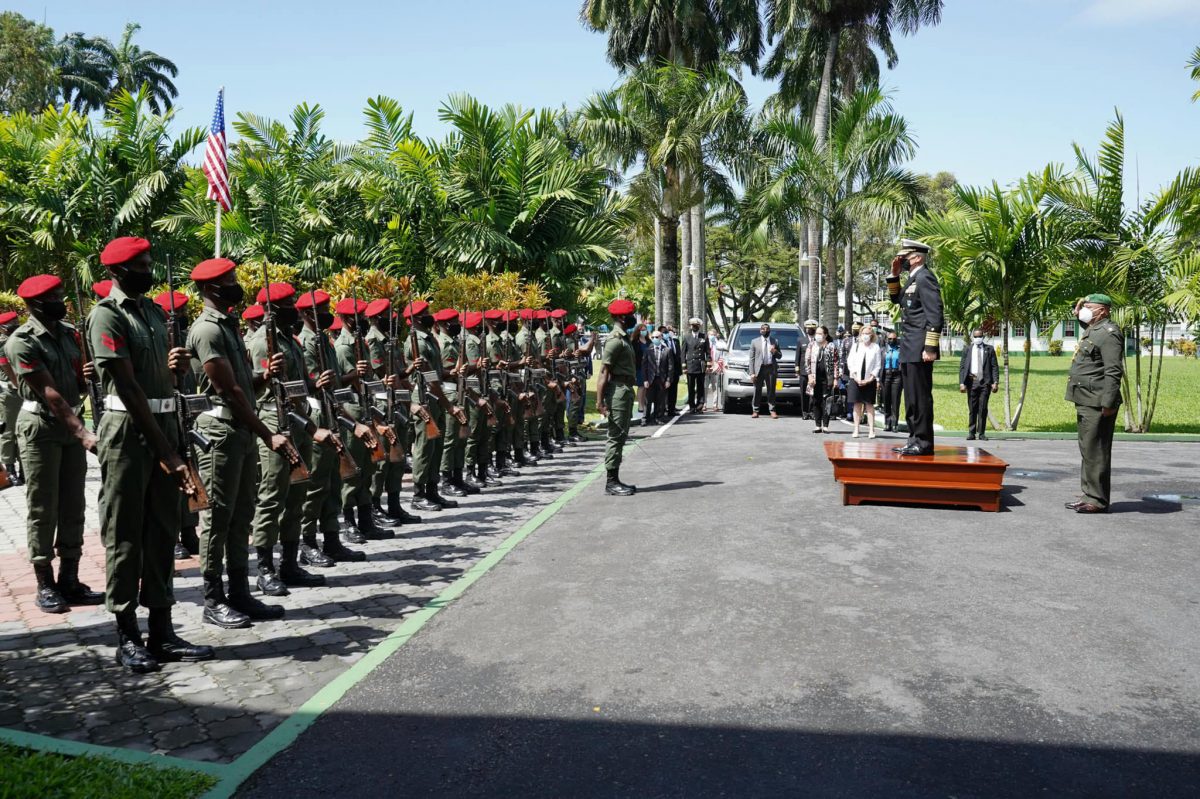A defence partnership agreement was signed yesterday between Guyana and the United States and it is expected to ensure increased safeguards against illegal fishing in this country’s waters.
Speaking at a joint press conference following the signing of the acquisition and cross-servicing agreement to strengthen the US’s and Guyana’s security cooperation in logistics, repairs and supplies as well as trade in goods and services, Guyana Defence Force Chief of Staff, Brigadier Godfrey Bess yesterday said that the majority of vessels involved in illegal fishing in Guyana’s waters originate in Venezuela and Suriname.
Also present was United States Southern Command Commander, Admiral Craig Faller, who noted that as part of collaborative efforts with the Coast Guard here under Operation Southern Cross, a joint exercise to deal with illegal fishing, was recently carried out.

While he deferred reporting on the issue here to the Guyana Defence Force and local officials, he stressed that illegal, unreported and unregulated fishing has been problematic for many countries.
In recent months, large numbers of Chinese ships have been closely monitored fishing in proximity to waters of several South American countries.
“Illegal fishing is a global significant problem and it is impacting food security globally. We have seen recent incidents off the waters of Ecuador where a Chinese fishing fleet of up to 300 vessels was proven to have incurred into that economic zone,” Faller said yesterday.
“Our efforts, working bilaterally and then working regionally, are to increase and strengthen what we call domain awareness—a term for sharing information about who and what is moving on the sea and over the sea. It is very important for illegal fishing or transnational organisations or any other range of threat. And so earlier today and during today, we will be discussing practical ways to continue to enhance that domain awareness. It is important for the security of Guyana and the United States with specifics to illegal fishing, it is a very important challenge,” he added.
Bess and Faller signed the agreement at State House.
United States Coast Guard (USCG) vessel USCGC Stone late last month embarked from its base in Pascagoula, Mississippi on a multi-month deployment to the South Atlantic with countering illegal, unregulated, and unreported fishing as part of its mission.
According to a USCG statement, the brand new Legend-class national security cutter, one of the U.S. Coast Guard’s flagships, will provide a presence and support national security objectives throughout the Atlantic under the umbrella of Operation Southern Cross.
This is the service’s first patrol to South America in recent memory, and will engage regional partners, including Guyana, Brazil, Uruguay and Argentina.
In September, the Coast Guard released the Illegal, Unregulated, and Un-reported Fishing Strategic Outlook, which it says reaffirms the agency’s commitment to global maritime security, regional stability, and economic prosperity.
According to Vice Admiral Steven Poulin, Commander of the Atlantic Area for the U.S. Coast Guard, “The U.S. Coast Guard is committed to the protection of living marine resources. IUU [Illegal, unregulated and unreported] fishing threatens the health of fish stocks and adversely impacts those who follow global norms and national laws. This is a global issue, and IUU is a problem too big for any one nation. Only by working together can we protect livelihoods, ensure ports remain economically productive, and support and sustainable fisheries industry. Stone’s patrol demonstrates our commitment to the established rules-based order while addressing IUU fishing wherever a Coast Guard cutter is deployed.”
Nearly half the world’s population relies on fish for 20 per cent of their animal protein. IUU fishing removes access to this valuable protein source, particularly to the most vulnerable coastal States. IUU fishing also results in tens of billions of dollars of lost revenue to legal fishers every year as well as undermines the sustainable management of these resources, pushing them to the limits of their capacity, the statement added.
According to Brigadier Bess, the last time that an illegal fishing vessel was brought inland here was sometime “mid last year”. “Persons are being prosecuted and actions are being taken as we speak,” he said.






